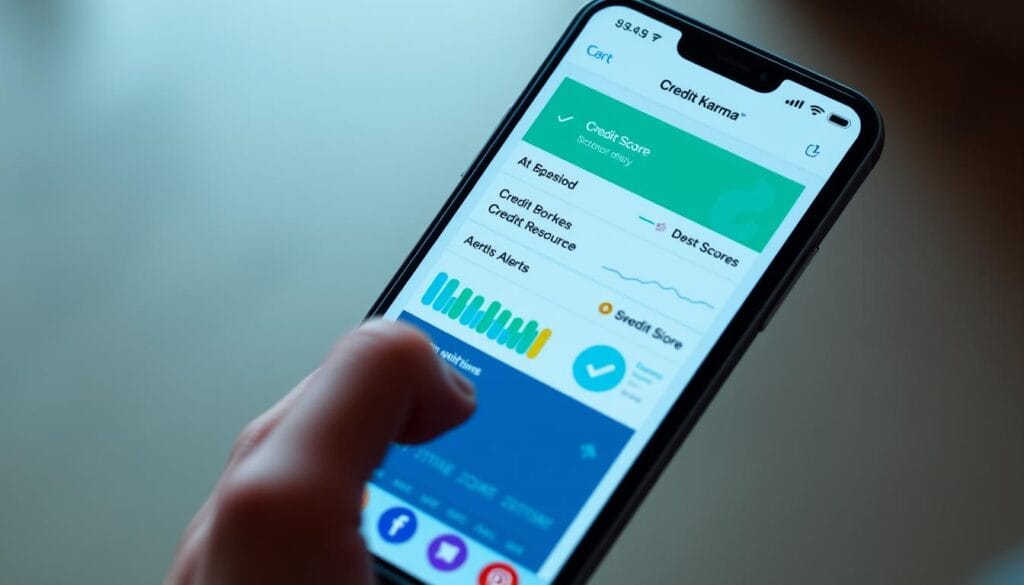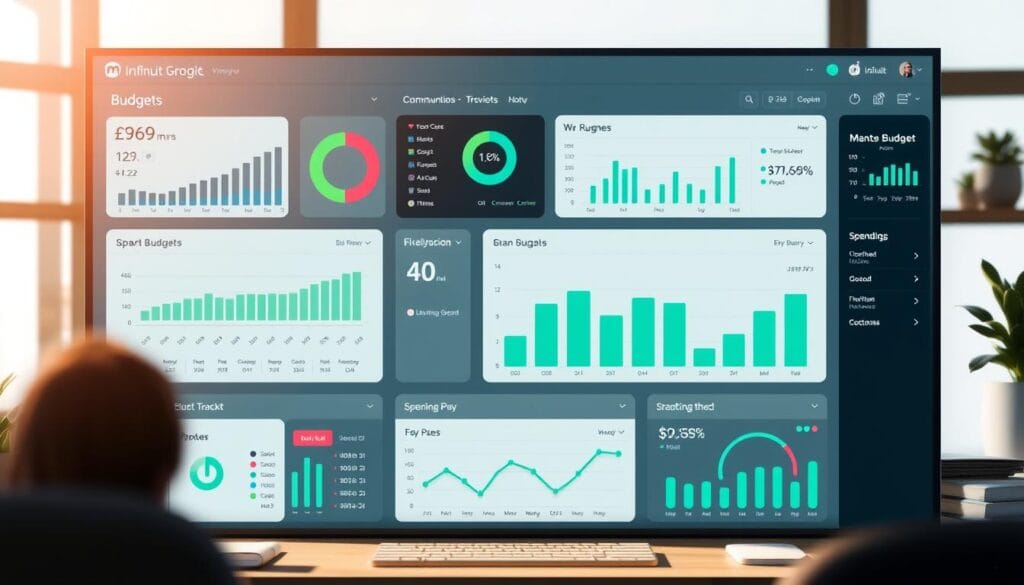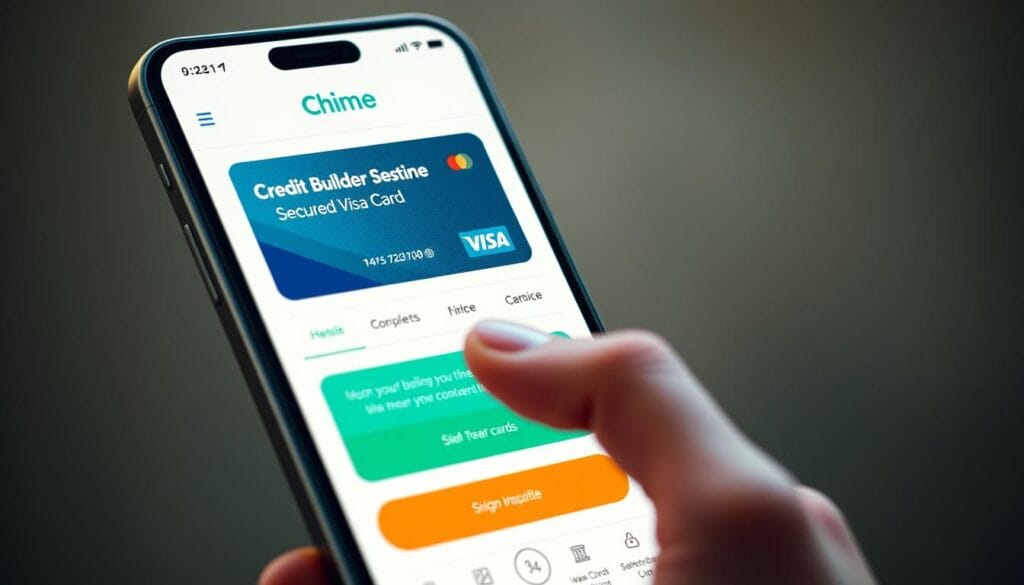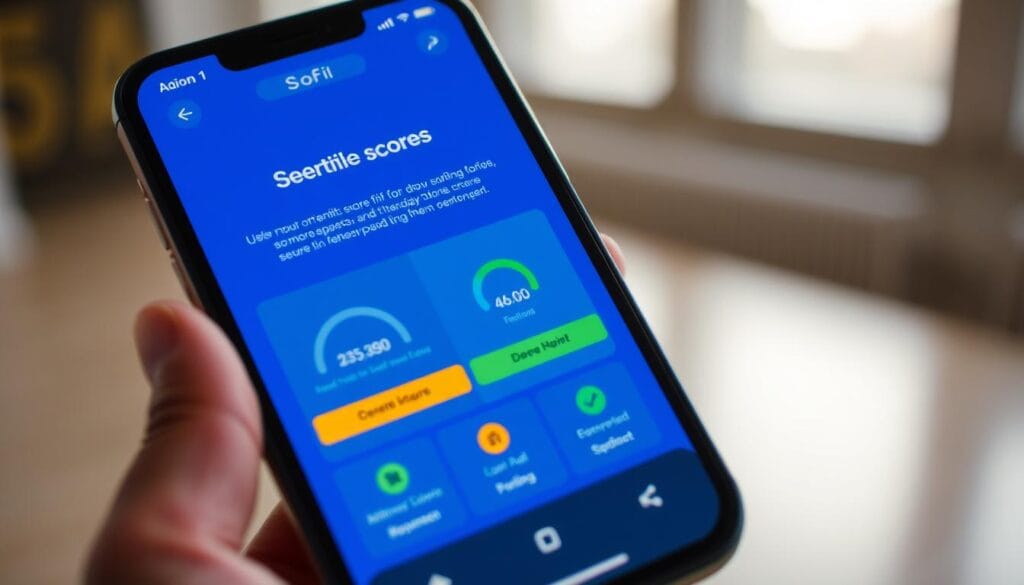The financial landscape is undergoing a significant transformation, with financial technology playing a pivotal role in reshaping how individuals manage their credit.
According to recent reports, 59% of users now rely on AI-driven services for making informed investment decisions, showcasing a growing trust in personalized financial solutions. The fintech industry, currently accounting for only 2% of global financial earnings, is projected to reach $1.5 trillion by 2030, representing nearly a quarter of global banking values.
As the fintech sector continues to evolve, credit management apps are emerging as essential tools for consumers seeking to improve their financial health. These modern applications leverage artificial intelligence and real-time data analysis to provide users with unprecedented visibility into their credit scores and actionable strategies for improvement.
Key Takeaways
- Fintech apps are revolutionizing credit management by providing personalized financial solutions.
- The integration of AI-driven services is enhancing user trust and engagement in financial decision-making.
- Credit management apps offer real-time data analysis and actionable improvement strategies.
- The global fintech market is projected to reach $1.5 trillion by 2030.
- Personalization in finance software can drive revenue growth by up to 15%.
The Evolution of Credit Management in the Digital Age

The digital age has brought about a paradigm shift in credit management, thanks to the advent of fintech solutions. Fintech isn’t just about convenience—it’s about empowerment. Fintech apps bring banking, investing, and financial planning to your fingertips, offering automation, cost savings, and hyper-personalized experiences that traditional institutions struggle to match.
The transformation of credit management through financial technology has fundamentally altered how consumers interact with their credit profiles. Traditional credit management relied heavily on periodic credit bureau reports and manual intervention, whereas modern fintech solutions provide continuous monitoring, instant alerts, and algorithmic improvement recommendations.
How Fintech Has Transformed Personal Finance
Fintech applications have democratized credit data, empowering users with unprecedented access to information previously gatekept by financial institutions. This has created more informed consumers who can now proactively manage their credit profiles. As digital banking has become mainstream, credit management has evolved from a reactive process to a proactive strategy, with apps offering predictive analytics to help users anticipate and prevent negative credit events.
The integration of open banking protocols has enabled financial services companies to provide holistic financial views that connect credit management with broader personal finance objectives. This comprehensive approach helps users make informed decisions about their financial health.
The Growing Importance of Credit Scores in 2025
In 2025, credit scores are more important than ever, influencing not just lending decisions but also employment opportunities, housing options, and even insurance premiums. The growing importance of credit scores reflects their expanded use beyond traditional lending decisions. Modern credit management technology emphasizes educational components, helping users understand the complex factors affecting their credit score rather than simply reporting numbers.
As financial technology continues to evolve, we can expect even more sophisticated tools for managing credit, making it easier for individuals to maintain good credit and achieve their financial goals.
Why Use Fintech Apps for Credit Management?

The rise of fintech apps has revolutionized credit management, offering users unprecedented control over their financial health. Fintech applications have transformed the landscape of personal finance by providing innovative solutions that simplify credit management.
Benefits of Digital Credit Management
Fintech apps for credit management provide numerous benefits, including real-time monitoring capabilities that alert users to changes in their credit profile, enabling rapid responses to potential issues or fraudulent activities. The automation features in these applications eliminate manual tracking, systematically identifying opportunities for improvement and suggesting specific actions to enhance credit scores.
Digital credit management tools also offer comprehensive dispute resolution assistance, guiding users through the complex process of challenging inaccurate information on their credit reports. Furthermore, these applications provide personalized credit improvement roadmaps based on individual financial situations, creating actionable plans with measurable milestones.
The integration capabilities of fintech credit management apps allow for seamless connections with banking platforms, payment services, and budgeting tools, creating a unified financial management ecosystem. Advanced credit management applications leverage machine learning algorithms to analyze spending patterns and debt management behaviors, offering increasingly sophisticated recommendations as they learn from user data.
Key Features to Look for in Credit Management Apps
When selecting a credit management app, several key features should be prioritized. These include credit bureau coverage (ideally all three major bureaus), score change explanations, identity theft protection, and credit simulation tools that model the impact of financial decisions. The most effective credit management apps balance comprehensive data analysis with intuitive user interfaces, making complex credit information accessible without overwhelming users with technical jargon.
Users should look for apps that offer customizable alerts and actionable insights to help them manage their credit effectively. By leveraging these features, users can take control of their financial health and make informed decisions to improve their credit scores.
How We Evaluated the Best Fintech Apps for Credit Management 2025
To identify top fintech apps for credit management, we developed a rigorous evaluation methodology that assesses various aspects of these applications.
Our comprehensive evaluation framework was designed to test the efficacy of credit management fintech apps across multiple dimensions.
Our Selection Criteria
The selection criteria for the best fintech apps for credit management involved a thorough assessment of several key factors.
We prioritized apps that provide access to all three major credit bureaus (Experian, Equifax, and TransUnion), as this comprehensive coverage offers users the most complete picture of their credit standing.
User experience significantly influenced our rankings, with particular attention paid to interface design, notification systems, and the clarity of information presentation for complex credit concepts.
- Accuracy of credit score reporting and frequency of updates were critical in our evaluation.
- Educational resources and improvement tools were also assessed to determine their effectiveness.
- Security protocols, including bank-level encryption and biometric authentication, were rigorously evaluated.
Testing Methodology
Our testing methodology included longitudinal testing over a six-month period to assess the accuracy of credit improvement recommendations and measure the actual impact on users’ credit scores when following app-suggested strategies.
We conducted cost-value analysis across all pricing tiers, comparing subscription fees against feature sets to identify applications offering the most substantial benefits relative to their cost.
For more insights on optimizing financial management, you can visit our article on top cash management accounts for 2025.
By employing this multi-faceted evaluation approach, we were able to comprehensively assess the features and performance of various fintech apps, providing valuable insights for users seeking to improve their credit management.
Credit Karma: Comprehensive Credit Monitoring

Credit Karma has established itself as a leading platform in the credit management space, offering users comprehensive tools to monitor and improve their credit scores. The app provides access to VantageScore 3.0 credit scores from both TransUnion and Equifax at no cost, making it an accessible entry point for credit monitoring.
Key Features and Tools
Credit Karma’s platform includes several key features that enhance its credit monitoring capabilities. The credit monitoring service provides real-time alerts for significant changes to credit reports, including new accounts, hard inquiries, and potential fraudulent activity. Additionally, the Credit Score Simulator allows users to model how specific financial decisions might impact their credit score before taking action.
The application’s Approval Odds feature uses proprietary algorithms to assess the likelihood of approval for various financial products, helping users avoid unnecessary hard inquiries that could temporarily lower their scores. Furthermore, Credit Karma’s Direct Dispute feature streamlines the process of challenging inaccurate information on credit reports.
Credit Score Improvement Strategies
Credit Karma integrates educational content throughout the user experience, explaining credit factors in plain language and providing contextual information about how specific behaviors affect credit scores. This empowers users to make informed decisions about their financial health and implement effective credit score improvement strategies.
Pros and Cons
While Credit Karma offers comprehensive monitoring without fees, it’s essential to note that the VantageScore model it uses differs from the FICO scores most commonly used by lenders. This might create discrepancies between displayed scores and those seen by creditors. Additionally, the app’s revenue model relies on recommending financial products to users, which may create potential conflicts of interest in certain credit improvement recommendations.
Experian: Direct Bureau Reporting and FICO Scores

With its robust features and direct integration with credit bureaus, Experian offers a comprehensive credit management solution. Experian’s direct bureau reporting provides users with authentic FICO8 scores, which are widely used by lenders to assess creditworthiness.
Boost Feature for Immediate Score Improvement
Experian’s standout feature is its Boost technology, allowing users to improve their credit scores immediately by getting credit for on-time payment of utilities, streaming services, and rent that traditionally don’t appear on credit reports. This innovative approach helps in enhancing credit profiles by considering a broader range of payment history.
Credit Monitoring and Identity Protection
The Experian app offers comprehensive credit monitoring and identity protection services. It includes dark web surveillance, social security number tracking, and up to $1 million in identity theft insurance, creating a robust security ecosystem around users’ financial identities. The platform also allows for instant credit lock, preventing unauthorized access to credit reports.
Pros and Cons
While Experian offers a free tier with basic monitoring, many of its valuable features, including three-bureau monitoring and advanced identity protection, require paid subscriptions. The app‘s user interface sometimes prioritizes upselling premium features, which can create a cluttered experience. For those seeking comprehensive credit management and willing to pay for premium services, Experian is a strong choice. For more information on monitoring your credit score, you can explore other top credit monitoring apps here.
Experian’s platform is designed to provide users with a detailed view of their credit data, helping them make informed decisions about their financial health. By understanding and managing their credit effectively, users can work towards achieving better financial stability, potentially reducing fees associated with poor credit and improving their overall banking experience.
Mint by Intuit: Integrated Financial Management

In the realm of credit management, Mint by Intuit offers a holistic approach through its integrated financial platform, allowing users to manage their finances comprehensively.
Budgeting Tools and Credit Score Integration
Mint’s budgeting tools automatically categorize transactions and track spending against user-defined budgets. This feature helps identify areas where financial adjustments could positively impact credit utilization ratios. By integrating credit monitoring within its comprehensive financial management platform, Mint enables users to see the relationship between their spending habits, debt management, and credit health.
Debt Management Features
Mint’s debt management features provide a visualization of all outstanding debts in one dashboard, with payoff planning tools that prioritize high-interest accounts. This approach maximizes credit score improvement while minimizing interest payments. The platform’s bill payment tracking and reminder system helps users maintain on-time payment records, a crucial factor in credit scoring models.
Pros and Cons
Mint offers free VantageScore 3.0 credit scores from TransUnion, updated quarterly, along with explanations of the factors influencing the score and personalized recommendations for improvement. However, its credit monitoring features are less comprehensive than specialized credit management apps, offering less frequent updates and monitoring from only one bureau. Additionally, Mint’s business model relies heavily on financial product recommendations, which can sometimes create a cluttered interface.
Despite these limitations, Mint excels at providing a holistic financial view, making it an excellent choice for users seeking an integrated financial management platform. Its goal-setting features allow users to establish specific credit score targets and create actionable plans to achieve them, integrating these objectives with broader financial goals.
Self: Credit Builder Accounts

For individuals looking to establish or improve their credit score, Self offers a unique approach. The platform focuses specifically on credit building rather than just monitoring, offering innovative credit builder loans that function as forced savings accounts while reporting positive payment history to all three major credit bureaus.
How Credit Builder Loans Work
The platform’s credit builder loans work by holding the loan amount in a certificate of deposit (CD) while users make monthly payments. Upon completion of the payment term, the funds (minus interest and fees) are released to the user. This process helps build a positive credit history, which is essential for achieving a good credit score.
Secured Card Options
Self’s secured credit card option requires no additional credit check for existing credit builder loan customers who have made at least three on-time monthly payments and have $100 or more in savings progress. This feature allows users to transition from credit builder loans to secured credit cards, further diversifying their credit profile.
Pros and Cons
While Self offers an effective credit-building pathway, its products come with fees and interest charges, making them more expensive than traditional secured credit cards from major banks. Additionally, the platform’s credit builder loans require a commitment period of 12-24 months, which may be less flexible than some alternative credit-building methods. However, the automated payment system ensures on-time payments, and the educational resources provide targeted guidance on credit building strategies.
Brigit: Emergency Funding and Credit Building

Brigit is a fintech app that offers a unique approach to credit management by focusing on cash flow. By recognizing that avoiding late payments and overdrafts is fundamental to maintaining good credit scores, Brigit provides a comprehensive platform for users to manage their finances effectively.
Cash Advances and Credit Building
Brigit’s cash advance feature provides users with up to $250 without interest or credit checks, helping them avoid costly overdraft fees and late payment penalties. This feature is particularly useful for users who need immediate financial assistance. The app’s credit builder feature reports users’ financial activity to credit bureaus, helping establish a positive payment history without requiring new debt obligations.
Financial Health Insights
Brigit’s financial health insights provide personalized analysis of spending patterns, income stability, and saving opportunities. This holistic approach to financial wellness supports credit improvement by helping users identify areas for improvement. The platform’s automated savings tool also helps users build emergency funds, reducing reliance on credit cards during financial emergencies.
Pros and Cons
While Brigit offers valuable services for cash flow management, its premium features require a monthly subscription fee of $9.99. This fee may be prohibitive for users already experiencing financial constraints. However, the benefits of using Brigit, including its cash advance feature and financial health insights, can outweigh the costs for many users.
In conclusion, Brigit is a robust platform for credit building and emergency funding. By providing cash advances and credit building features, Brigit helps users manage their finances more effectively and improve their credit scores.
MoneyLion: All-in-One Financial Platform

MoneyLion’s financial platform combines credit building, banking, investment, and financial literacy tools to provide a holistic approach to financial management. This comprehensive ecosystem is designed to address multiple aspects of financial health simultaneously, making it an attractive option for users seeking a one-stop solution.
Credit Builder Plus Program
The Credit Builder Plus program is a key feature of MoneyLion’s platform, offering a small credit builder loan combined with credit monitoring and financial tracking. By reporting payments to all three major credit bureaus, this program helps users establish a positive payment history, which is crucial for improving their credit scores. For more information on how fintech apps like MoneyLion are enhancing financial literacy, visit MoneyLion’s Financial Literacy Guide.
Investment and Banking Features
MoneyLion’s banking features include a checking account with no minimum balance requirements and early paycheck access, helping users maintain consistent cash flow for on-time bill payments. The platform’s automated investment options allow users to build wealth while improving their credit, with portfolios tailored to individual risk tolerances and financial goals.
Pros and Cons
While MoneyLion offers valuable services, its Credit Builder Plus program comes with a monthly membership fee of $19.99, making it one of the more expensive options for credit building. Additionally, the platform’s credit builder loans carry an APR that, when combined with the membership fee, can make them costlier than traditional credit-building products. However, the comprehensive nature of MoneyLion’s financial ecosystem, including its emergency loan options, provides a unique value proposition for users seeking an all-in-one financial solution.
Chime: Banking and Credit Building

Chime is revolutionizing the way individuals manage their finances and build credit through its innovative banking solutions. As a financial technology company, Chime partners with FDIC-insured banks to offer online checking and savings accounts with no hidden fees, providing a hassle-free banking experience.
Credit Builder Secured Visa Card
Chime’s Credit Builder secured Visa card operates on an innovative model that eliminates many traditional barriers to credit building. It requires no credit check and no minimum security deposit to get started. The card allows users to transfer funds from their Chime Spending Account to their Credit Builder account, establishing their spending limit.
No Annual Fees or Interest Charges
The Credit Builder card charges no annual fee, no interest, and no minimum security deposit, making it one of the most affordable credit-building tools available. Chime’s “Safer Credit Building” feature automatically pays off charges from the secured account at the end of each month, ensuring on-time payments that positively impact credit scores.
Pros and Cons
While Chime’s Credit Builder card effectively helps establish payment history, it doesn’t offer rewards or cashback benefits. The platform requires users to have a Chime Spending Account to access the Credit Builder card, which may be an additional step for those seeking credit-building tools without changing their primary banking relationship.
Overall, Chime’s banking features complement its credit building tools, offering a fee-free checking account with early direct deposit access and no overdraft fees. By reporting card activity to all three major credit bureaus, Chime helps users build credit history through regular use and on-time payments.
SoFi: Comprehensive Financial Tools with Credit Monitoring

SoFi’s platform is engineered to help users manage their finances more effectively, with a particular focus on credit health through its various financial tools. As a comprehensive financial ecosystem, SoFi offers a range of services designed to work in concert to improve overall financial well-being.
Relay Money Management
SoFi’s Relay tool aggregates financial data from over 10,000 institutions, providing a unified view of users’ financial situations, including credit cards, loans, investments, and bank accounts. This comprehensive overview enables users to make informed decisions about their financial health.
Loan Refinancing Options
The platform offers loan refinancing options that can help users consolidate high-interest debt into lower-rate loans, potentially improving credit utilization ratios and simplifying payment management. This feature is particularly beneficial for users looking to streamline their financial obligations.
Pros and Cons
SoFi’s comprehensive financial tools, including its credit monitoring feature, provide users with a robust platform for managing their financial health. The platform’s money management account, SoFi Money, offers competitive interest rates and no account fees, helping users build savings. However, its credit monitoring is limited to one bureau (TransUnion), and the most advantageous refinancing rates are reserved for users with excellent credit.
In conclusion, SoFi presents a compelling option for users seeking a multifaceted financial platform with integrated credit monitoring. By leveraging its range of financial tools and services, users can work towards improving their credit health and overall financial stability.
Emerging Trends in Credit Management Technology for 2025
As financial technology continues to evolve, new trends are emerging in credit management for 2025. The landscape of credit management is being reshaped by advancements in various technologies, making it more sophisticated and accessible.
Revolutionary Credit Optimization
AI-Powered Credit Optimization is revolutionizing the way credit management is handled. Advanced algorithms analyze vast amounts of financial data to identify personalized credit optimization strategies that extend beyond traditional credit score factors. Predictive AI models can now forecast the potential impact on credit scores before financial decisions are made, enabling users to model complex scenarios with high accuracy.
Enhanced Data Sharing
The advent of Open Banking has significantly expanded the range of data available for credit assessment. Fintech platforms can now incorporate a variety of financial data, including rent payments, utility bills, and gig economy income, into credit evaluations. This has led to more comprehensive credit profiles, benefiting consumers with limited traditional credit history.
Secure Credit Verification
Blockchain technology is emerging as a secure solution for credit verification, creating immutable records of payment history. This not only reduces disputes but also streamlines the credit reporting process. Moreover, the integration of biometric verification with blockchain-based credit systems is enhancing security while simplifying the user experience.
These technological advancements are collectively democratizing access to credit improvement tools, making sophisticated credit management accessible to a wide range of consumers. As the fintech industry continues to innovate, we can expect even more refined and user-friendly credit management solutions in the future.
Conclusion: Choosing the Right Fintech App for Your Credit Goals
As we navigate the complex landscape of credit management in 2025, selecting the right fintech app becomes crucial for achieving financial stability. The diverse range of available apps offers various tools and services designed to improve credit scores and overall financial health.
For individuals building credit from scratch, platforms like Self and Chime offer structured pathways through secured products and credit-builder accounts. Users seeking comprehensive monitoring may benefit from Experian’s direct bureau integration or Credit Karma’s dual-bureau tracking. When choosing a fintech app, consider factors such as fee structures, integration capabilities with existing financial bank accounts, and privacy considerations.
It’s essential to be aware of hidden fees associated with some apps and to understand how they impact the overall cost-effectiveness of their credit improvement tools. The most effective approach often involves combining complementary tools to achieve a wide range of financial benefits. For instance, using one app for comprehensive monitoring while leveraging another’s specific credit-building products can be highly effective. For those looking for additional financial solutions, exploring options like bad credit loans can provide further assistance.
Ultimately, consistency in financial behaviors remains the foundation of credit improvement, with fintech tools serving as facilitators rather than substitutes for sound financial practices. By carefully evaluating your options and selecting the right app for your needs, you can effectively manage your credit and achieve your financial goals.

